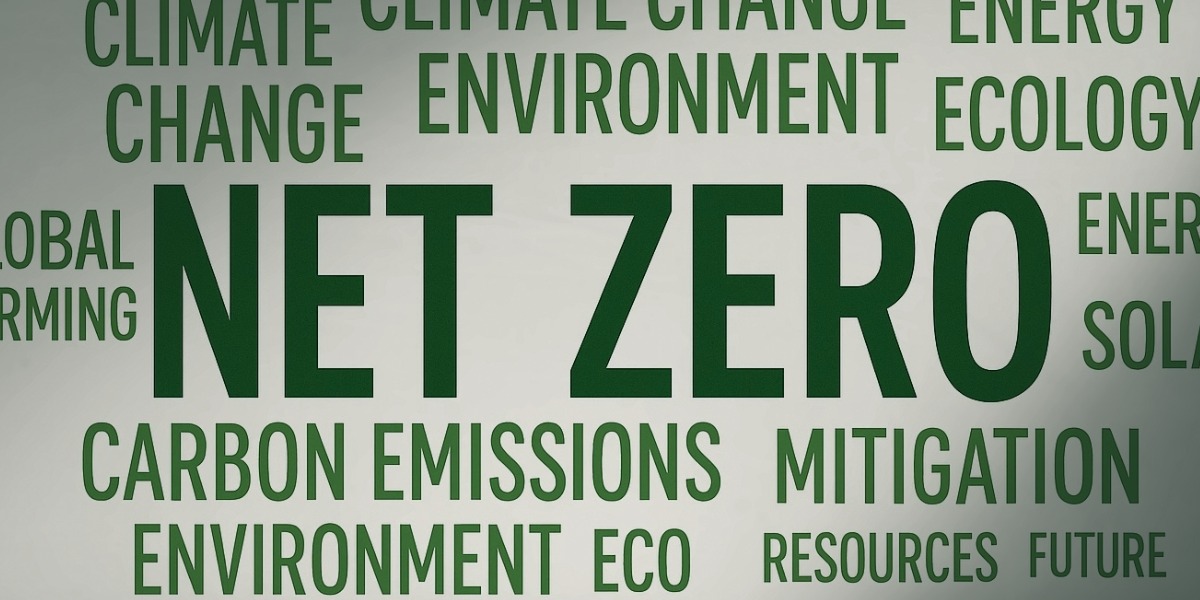Somewhere along the way, Australia stopped talking about net zero emissions and started talking about wind farms and power bills.
The shift was slow, almost imperceptible, but now the two concepts are treated as if they are interchangeable.
It is little wonder that public debate feels muddled. We are no longer even discussing the same thing.
Net zero never meant “more renewables” or “cheaper electricity”. It has always had a clear scientific purpose: to stop adding greenhouse gases to the atmosphere faster than the planet can absorb them.
Scientists warn that unless global emissions fall to net zero, the concentration of these gases will continue to rise, and with it the disruption to our climate. Net zero is a balancing point, not an energy technology. It is an economy-wide global target that includes electricity, yes, but also industry, agriculture, mining, manufacturing, transport, land use, and the hard-to-abate sectors that are too often ignored.
Yet, over time, net zero has been squashed to fit solely into the frame of the renewable energy transition. Public debate focuses almost entirely on the generation and cost of electricity. Whether it is arguments about wind turbines, solar farms, transmission lines, household power bills, or firming the grid, the discussion assumes net zero is fundamentally an energy question. Not a greenhouse gas emissions question.
The recent decisions of the National and Liberal parties to step away from their net zero commitments – and particularly the rhetoric they used while doing so – has only reinforced this. Their objections are almost entirely about energy reliability, the cost of renewables, or the pace of change in the power sector. Very little of it has anything to do with the true meaning of the term ‘net zero’.
This matters. When net zero is reduced to an argument about electricity, Australia risks targeting only one slice of the challenge. We end up debating solar panels while neglecting industrial emissions. We worry about transmission lines while saying little about industrial heat, freight emissions or carbon removals. We talk about farmers blocking renewable developers access to their land, and don’t talk about farmers being blocked from markets if we don’t have an emissions reduction policy that meets our international commitments.
The political fight becomes narrower, easier to weaponise, and far less honest about what net zero truly requires.
Of course, the renewable energy transition is a huge and very necessary part of getting to net zero. It is one of the fastest and most cost-effective ways to cut emissions, and every credible pathway relies on decarbonising electricity and then electrifying much of the economy. Acknowledging this does not make “renewables” and “net zero” synonyms. A key piece of the puzzle is not the whole puzzle.
Net zero is not the first term to suffer this fate. Our national debates are littered with words that have been bent out of shape by political campaigners: climate change, marriage equality, the Voice – even gender terms have suffered the same fate. Each side adopts a meaning that suits its argument, prosecutes its argument using its preferred interpretation (usually progressively deviating further from the truth over time) and the terms lose their shared definition. Once that happens, agreement becomes almost impossible.
People argue past each other, responding to different interpretations of the same phrase. They campaign in their bubble, preach to their choir, and no one wins.
If Australia is ever going to make progress on climate policy, or on any contentious issue, we need to start with a common language. Net zero should mean what it actually means: balancing our emissions so that the climate stabilises.
Until we can talk about that honestly, without reducing it to electricity prices or solar panels, the debate will remain stuck, and so will we.
Got something on your mind? Go on then, engage. Submit your opinion piece, letter to the editor, or Quick Word now.


Well written thankyou. When you consider the three pillars of sustainability Environment, Society and Economy it backs up your reasoning entirely. The environment is the first priority, followed by the society with in it and lastly the economy developed by that society. While cost of energy is important it is the lowest priority compared to the environment if we wish to sustain our society. The main idea of renewables is lower emissions so we then have to sculpt society and the economy around that. The LNP have simplified the issue and have it backwards by looking at cost first. This approach while great for simple slogans will not bring a satisfactory solution. In any case the LNP are two and a half away from a shot at government and are taking the same approach that delivered their last electoral drubbing. By that time available base load for coal/steam generation will be well under 50% making it economically unviable and especially if you consider a five year build time for new plants. In any case the LNP would have to win the next election with control of the Senate to implement any of their slogans, a highly unlikely outcome.